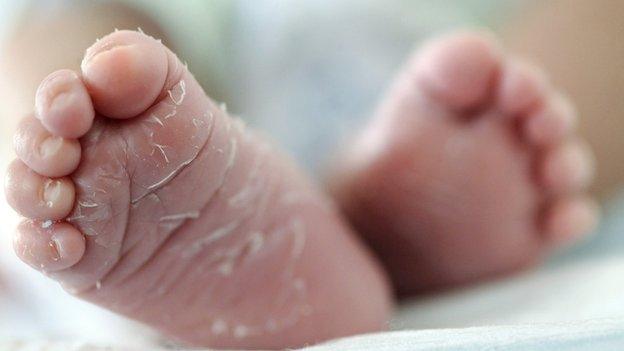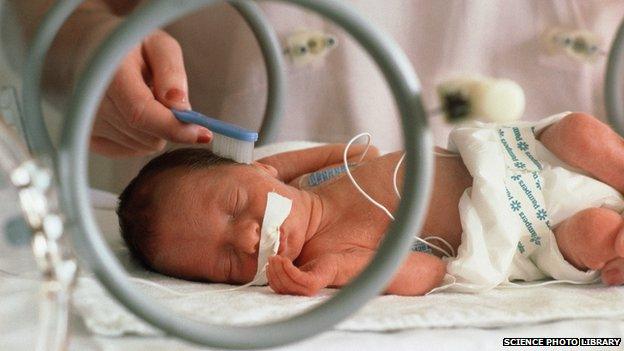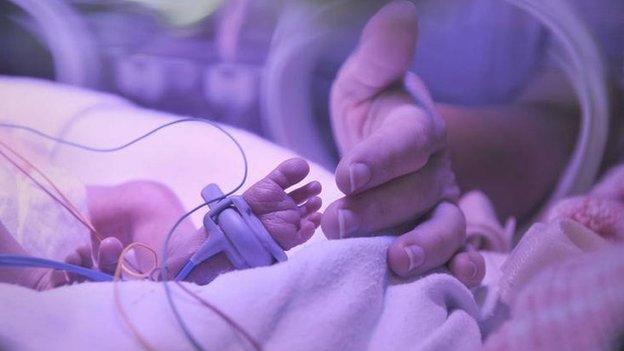Three new baby hospital poisoning cases
- Published

Eighteen cases of newborn babies being taken ill at nine hospitals have been recorded
Three new cases of babies developing blood poisoning from a suspected contaminated drip have come to light.
It brings the total number of newborns infected to 18, many of them were premature babies. One of them has died.
The babies were being cared for in neonatal intensive care units in nine different hospitals and are said to be responding to antibiotic treatment.
Of the three new cases, two are said to be likely with one confirmed, Public Health England said.
All started displaying symptoms between Thursday and Saturday last week, but have only now been reported to Public Health England.
Hospitals were alerted to the problem on Wednesday. The contaminated batches have since been withdrawn, although as they expired on Monday none should have been used since then.
A total of 162 units of the feed were sent out from the contaminated batches to more than 20 hospitals. It is possible other cases will emerge as tests are carried out.
The liquid feed is given direct into the bloodstream of babies as they cannot be mouth fed. It means symptoms start developing quickly.
ITH Pharma managing director Karen Hamling: "I am deeply saddened"
'Saddened'
Public Health England and the Medicines and Healthcare products Regulatory Agency (MHRA) are investigating the outbreaks.
The manufacturer of the feed, ITH Pharma, has said it was "saddened" by what has happened and was cooperating fully with the investigation.
The cases have been reported at:
Chelsea and Westminster NHS Trust, London (four)
Guy's and St Thomas' NHS Foundation Trust, London (three)
Brighton and Sussex University Hospitals NHS Trust (three)
Addenbrooke's, Cambridge University Hospitals (two)
Luton and Dunstable University Hospital (two)
The Whittington Hospital, London (one)
Peterborough City Hospital (one)
Southend University Hospital (one probable case)
Basildon University Hospital (one possible case)
The baby who died was being treated at Guy's and St Thomas'. The baby died on Sunday after being diagnosed the previous day.

Bacillus cereus
A type of bacterium that produces toxins that cause two types of illness
The most common form causes nausea and vomiting
The symptoms may start one to six hours after eating contaminated food
The poison is not passed from one person to another and symptoms do not usually last longer than a day
Less common is an illness which causes fever and diarrhoea
These symptoms, which may be serious, usually start six to 24 hours after eating and can last for one or two days

The investigation is focussing on the production of the batches on Tuesday 27 May.
Speaking outside the company's north west London base, ITH Pharma managing director Karen Hamling said: "From investigations carried out so far, it would appear the potential contamination is linked to a single sourced raw material ingredient.
"As a mother, as a pharmacist , as someone who has worked for 30 years in healthcare, inside and outside the NHS, I am deeply saddened that one baby has died and others have fallen ill from septicaemia."
- Published5 June 2014

- Published4 June 2014
